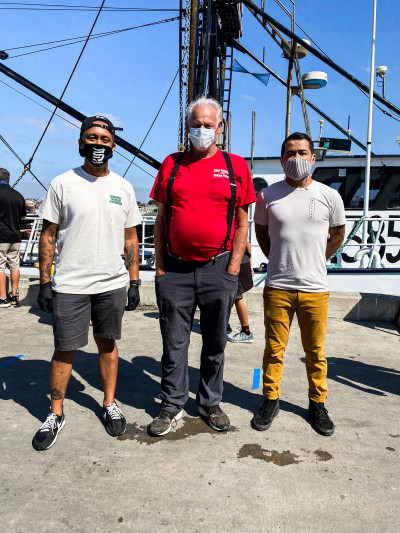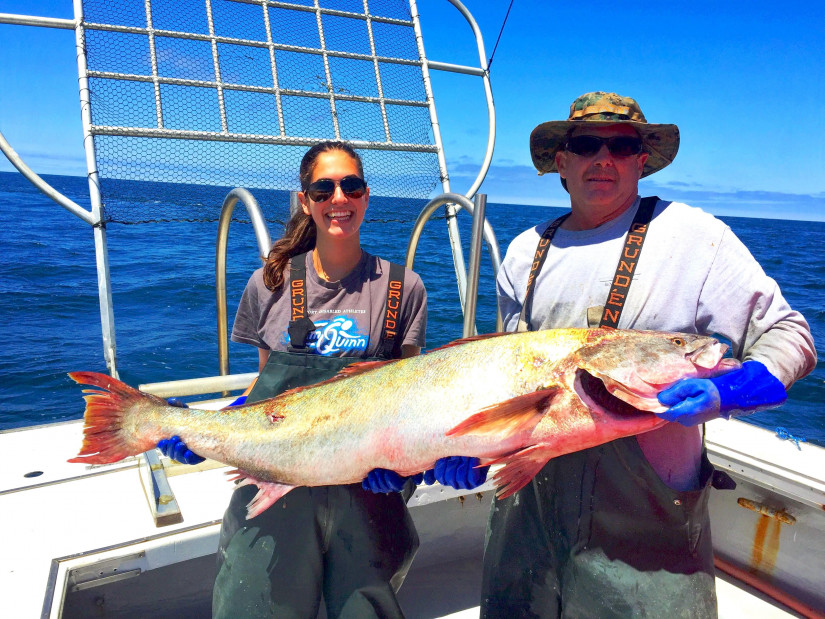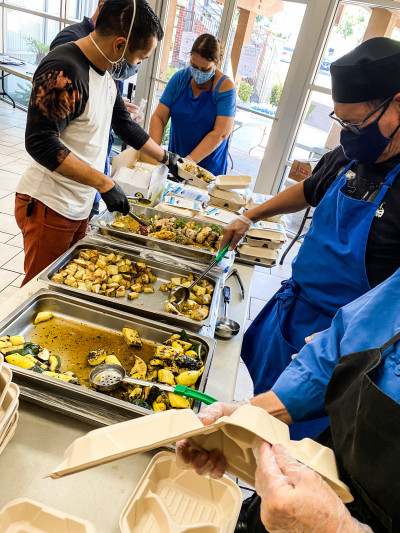The COVID-19 pandemic has posed unprecedented challenges across the globe, as well as to local economies and marginalized communities. Around the country, challenges include disruptions to food supply chains, with producers and food service workers losing much of their livelihoods due to shutdowns of food processing plants, distribution facilities, and restaurants, resulting in a harvest that has nowhere to go. Meanwhile, people are out of work and social services are strained, leaving people food insecure and hungry.

In San Diego, local fishermen and a charitable restaurant group have partnered to take action. The San Diego Fishermen’s Working Group alongside Chef Phillip Esteban and his group, Open Gym, have collaborated to create Fish to Families, a meal distribution program that purchases responsibly harvested fish from local fishermen and brings them to the plates of people who need it most during the COVID-19 crisis. Funded by The San Diego Foundation, this program also supports food service staff who would otherwise be under- or unemployed during this time. California Sea Grant and NOAA Fisheries contribute to this program through the creation of sustainable seafood outreach materials and assistance with tracking program impacts. Meal distribution throughout San Diego is accomplished with the help of the Third Avenue Charitable Organization and I Love to Glean.
As the program finishes its sixth week of operation, Open Gym has prepared over 3600 healthy, delicious, sustainable seafood meals from nearly 2500 pounds of whole fish provided by ten local fishermen. In a time of uncertainty, the program has been able to return a little security to both the people it feeds as well as to the fishermen whose industry has and continues to suffer the effects of the pandemic.
Kris Honings, a third generation San Diego fisherman who has provided his catch to the program said, “I’m grateful to be part of something that gives back to the community and that’s allowed us to keep working during the pandemic to continue providing for our families.”
Besides addressing some of the challenges that come with the COVID-19 pandemic, the Fish to Families program illustrates the potential simplicity, efficiency, and effectiveness of local food systems. Buying directly from fishermen guarantees traceability of food sources and keeping some of the fish landed in San Diego on the plates of San Diegans boosts local jobs and food security.
The project also brings high standards of responsibility and commitment to the community and the environment. “Our fisheries are some of the most responsibly managed in the world and our fishermen take pride in their sustainable fishing practices and making their catch accessible to the public,” says Theresa Talley, a California Sea Grant Extension Specialist and partner on this project.

San Diego fisherman Martin Kastlunger, who fishes with his daughter and has contributed their catch to the program said, “I fish because I like being able to give back to the community and feed my family and other families with the things that I catch.”
The food service team prides itself on maintaining an ethos of zero food waste by making creative use of the fish and often discarded products such as fish bones and heads for stock.

Even before this program started, Chef Phillip’s model for his catering business, Craft Meals, was a charitable one. Since April, Craft Meals has joined the efforts of World Central Kitchen providing 250 meals a day to local San Diego community outreach programs. These practices contribute not only to the program’s impact but also to the bettering of our community.
In times of crisis, it is crucial to present long-term solutions. While food insecurity has been an obvious challenge during this pandemic, it is not new. Food insecurity has long been a societal challenge that is now severely magnified during the pandemic. The program aims to maintain the momentum it has built up during this crisis to carry on the positive change it has made into a post-pandemic world. The future holds many uncertain challenges to the long, often international supply chain that is the current industrial food system - more pandemics, world politics and tariffs, and climate change.
We are going to need food systems that are more resilient to change and that can provide for all. Talley adds “And while we’re at it, we should ensure that we have stable access to plenty of brainfood so that we are ready to meet these challenges!”